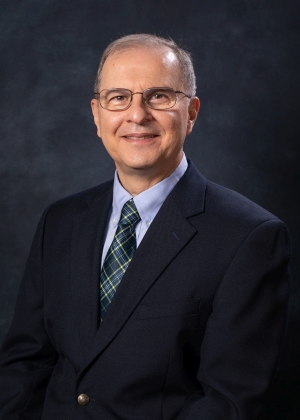- Salary and Benefits
- Application Information
- Curriculum
- Current Residents
- Placement of Former Residents
- Community Information
Our residency program was started in 1983; just one year after ETSU's Quillen College of Medicine graduated its first class, and has been continuously accredited by the ACGME since that time.
The primary mission of this residency program is to produce board certified pathologists who are able to effectively and competently enter the practice of pathology and laboratory medicine as generalists, and are well-prepared to seek advanced fellowship training if they are interested in specialization. To that end, we focus on the combined anatomic and clinical pathology (AP/CP) track, and have a total of eight residents in the program (two per class).
Our program's vision is to provide excellent training in a nurturing and supportive environment fully focused on the individual resident’s success.
Our program's values are:
- Scholarship and Caring: A supportive environment that promotes teaching, learning, and the expansion and propagation of knowledge.
- Trust and collaboration as a basis of relationships.
- Transparency in decision making and administrative actions.
- We are committed to continuous improvement.
Program Aims:
- Provide a broad-based training to enable residents to become competent pathologists who are effective diagnosticians and clinical consultants.
- Educate residents so that they are well prepared for specialty fellowship training.
- Foster the habit of life-long learning and the ability to critically assess the medical literature.
- Sustain the program’s nurturing and supportive culture that is committed to the personal and professional growth, and well-being of the individual resident.
- Provide opportunities for residents to develop leadership and management skills.
We are a university-sponsored community-based program. Our program is sponsored by East Tennessee State University, Quillen College of Medicine, and for the most part, training occurs at our affiliated hospitals: the Johnson City Medical Center (our primary training site), the James H Quillen Veterans Affairs Medical Center, as well as the James H Quillen College of Medicine at ETSU. These facilities are closely located together in a beautiful campus setting. The combined annual workload includes over four million laboratory tests, 35,427 surgical specimens, 36,185 cytology specimens with approximately 3,000 non-gyn cytology specimens, and 653 autopsies (including the forensic autopsies from the William Jenkins Forensic Center, which is part of the ETSU Department of Pathology). Most of the faculty who work and teach at our affiliated sites are adjunct clinical faculty who are the university’s committed partners in the program.
Our program has eight residents (two/year). We are passionate about pathology and
about training pathology residents. Our program offers residents a supportive and
nurturing learning environment with focus on the individual resident's educational
objectives. Most of our faculty members tend to be generalists with expertise in a
subspecialty. We have generalist surgical pathology sign-outs which allows the resident
to be exposed to a wide variety of material in the random order characteristic of
most generalist practices, but at the same time having subspecialty expertise available
for further consultation when needed. The residency experience in our program in both
anatomic and clinical pathology is typical of what you would expect in a busy community
practice. Residents also participate in the academic and scholarly activities of the
ETSU Department of Pathology and its affiliated hospitals.
We are located in an area endowed with a moderate climate and natural beauty with abundant outdoor recreational opportunities available year-round. Johnson City, one of the Tri-Cities of Northeast Tennessee, is a small city that serves as the healthcare and academic hub for a large, mostly rural, area. The city is home to East Tennessee State University, its Quillen College of Medicine, Gatton College of Pharmacy, and all other parts of its Academic Health Sciences Center. Johnson City offers many of the amenities one expects in urban centers, but retains the feel of a small university town.
With best wishes,

Salah Shurbaji, M.D.
Professor and Chair, Director of Pathology Residency Program
shurbaji@etsu.edu
 South Dossett Drive - Closure...
South Dossett Drive - Closure...